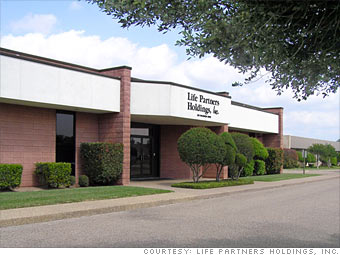© 2012 The Texas Lawbook.
By Natalie Posgate
Staff Writer for The Texas Lawbook
An Austin judge issued a temporary restraining order Friday against Life Partners Holdings, Inc. and its subsidiary Life Partners, Inc. instructing the Waco-based company to stop illegally selling unregistered securities to investors and to preserve all financial documentation.
Travis County District Judge Orlinda Naranjo ruled that Life Partners has likely been violating the Texas Securities Act through its practice of buying life insurance death benefits from elderly and terminally ill policyholders, then reselling them to investors without disclosing the actual life expectancies of the insured.

Life Partners officials deny the allegations that they have violated any securities laws.
Judge Naranjo declined a request by Texas Attorney General Greg Abbott to immediately appoint a receiver to take control of the corporation’s financial operations. However, she scheduled another hearing for Aug. 30 so that the attorney general could renew his request. If the court decides to appoint a receiver for Life Partners, Dallas attorney Richard B. Roper of Thompson & Knight has agreed to fill the position.
The Texas State Securities Board, in a lawsuit filed Wednesday, compares Life Partners’ business activities with that of a used car salesman who rolls back the odometer and then overcharges the buyer. The lawsuit alleges that some investors have had to pay premiums to keep the policies from collapsing, since people lived longer than Life Partners predicted.
The Texas lawsuit follows a similar case brought by the U.S. Securities and Exchange Commission earlier this year that alleges that Life Partners misled investors in regard to the life expectancy of the policies they purchased. The company, according to the SEC, hired a Reno, Nev. oncologist with no formal actuarial training to predict the life expectancy of people covered by the viatical settlements.
“The Court finds that the State of Texas is likely to prevail on its claims that the defendants have violated or are in violation of the Securities Act… unless temporarily restrained, the defendants are likely to commit violations of the laws of the State of Texas, all contrary to the best interests of the general public and the State of Texas,” Judge Naranjo said in her decision.
The state attorney general asked the judge to permanently bar Life Partners Chief Executive Officer Brian D. Pardo and President R. Scott Peden from selling the allegedly fraudulent securities.
In the court filing, the attorney general expressed concern with LPHI’s alleged actions because the company’s public filings “reflect a company in dire financial condition.” Life Partners had a net loss from operations of more than $5 million and a 78.8 percent decline in revenues during the 2012 fiscal year. The state believes Life Partners will be out of cash in as early as two months.
Despite their financial situation, Life Partners plans to pay a quarterly dividend of approximately $1.8 million around Sept. 15 – about $900,000 of which goes to the CEO or his family trust, the complaint said.
Life Partners issued a statement on its website on Thursday in response to the lawsuit that denied the attorney general’s allegations and the companies’ financial situation.
“We deny the allegations in the strongest possible terms,” Chairman Pardo said in the statement. “The allegation that we are nearing insolvency is spurious. It is speculation drawn from innuendo. The facts are that we currently have more than $10 million in cash on hand, $45 million in assets, and virtually no debt.”
The state’s lawsuit said that Life Partners has more than 29,000 investors nationwide. As of Dec. 31, 2010, the company held 3,879 policies – 3,152, or 81 percent, of them were beyond the contrived life expectancy estimates provided to investors.
© 2012 The Texas Lawbook. Content of The Texas Lawbook is controlled and protected by specific licensing agreements with our subscribers and under federal copyright laws. Any distribution of this content without the consent of The Texas Lawbook is prohibited.
